Guild makes a major play for the made-in-USA acoustic market with the “no frills, boutique quality” Standard Series
They're classy, made in Cali, and available in Natural, Antique Burst and Pacific Sunset Burst, all finished with a lick of Vintage Gloss nitro, and the series marks the return of the D-50
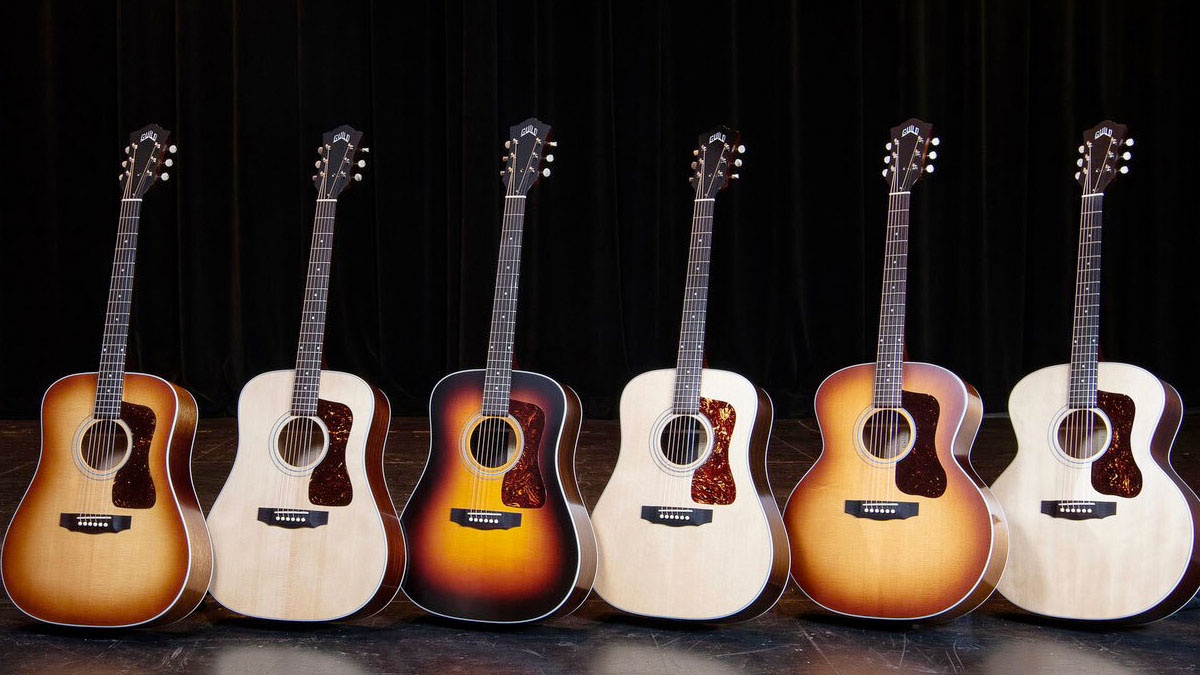
Guild has announced the launch of the Standard Series, a new range of acoustic guitars with a vintage vibe, modern build, all made in the USA.
The Standard Series is a big deal for Guild in what is a big year for the storied guitar brand as it celebrates its 70th anniversary, and it debuts a brand new Pacific Sunset Burst finish, and introduces refreshed Guild classic models, the D-40, D-50, and F-40 to the lineup, with each guitar spritzed with an ultra-thin coating of nitro before leaving the workshop.
Guild calls this its Vintage Gloss finish, and it’s just enough nitro to make the guitar shine. The finish somewhere between gloss and matte, yet “smoother than satin”, and offers some guarantee that it will just look better over time.
In the hierarchy of Guild’s 2023 lineup, you’ll find the Standard Series just under the top-of-the-line 55 and Traditional models, which really are the definition of high-end acoustic guitars.
And if that rings a bell, Guild fans, it should. Around 2011, there was a Standard Series that offered a similarly stripped down range that offered a similar alternative to the Traditional models, albeit with different specs – the 2011 F-50, for example, used figured maple to complement the Sitka spruce top, not mahogany as it does here.
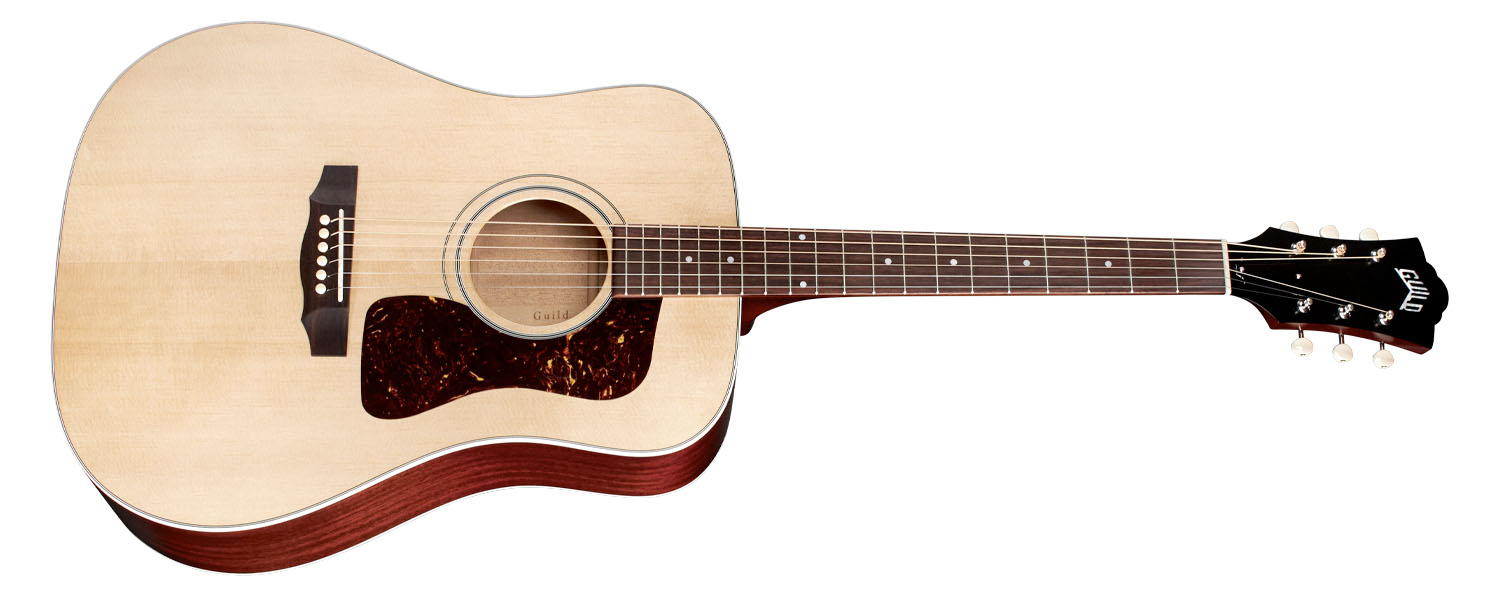
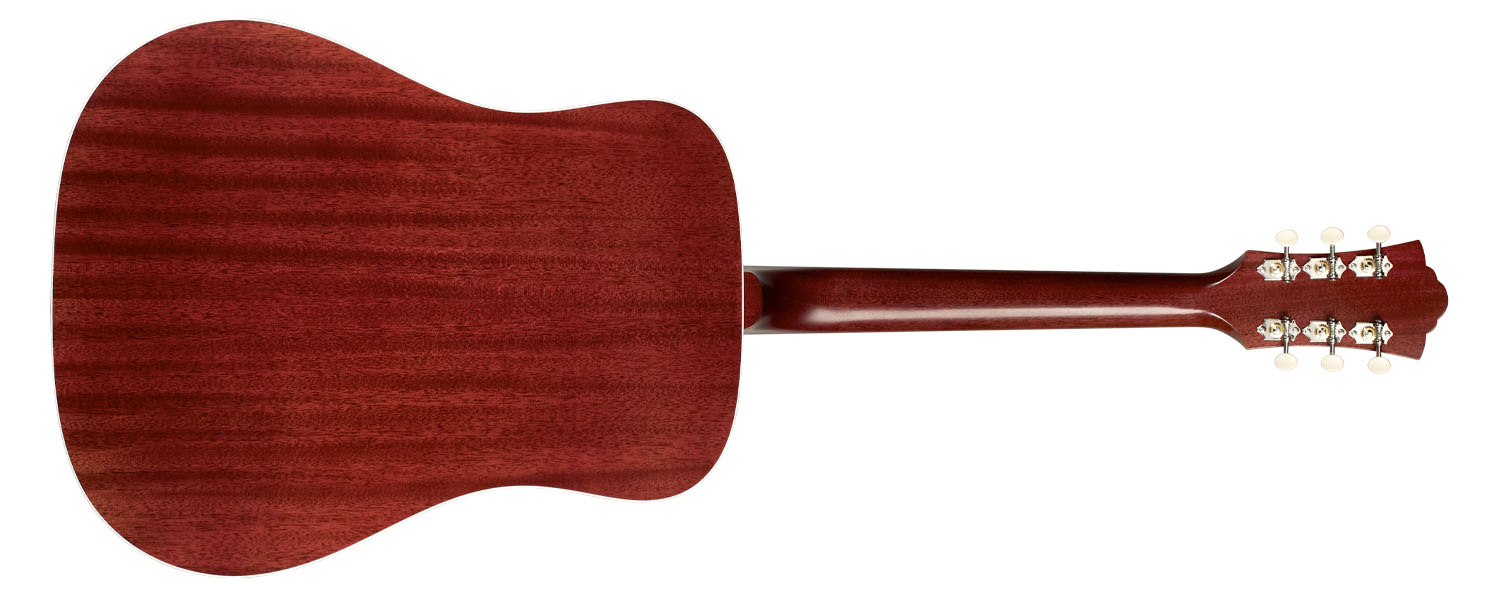
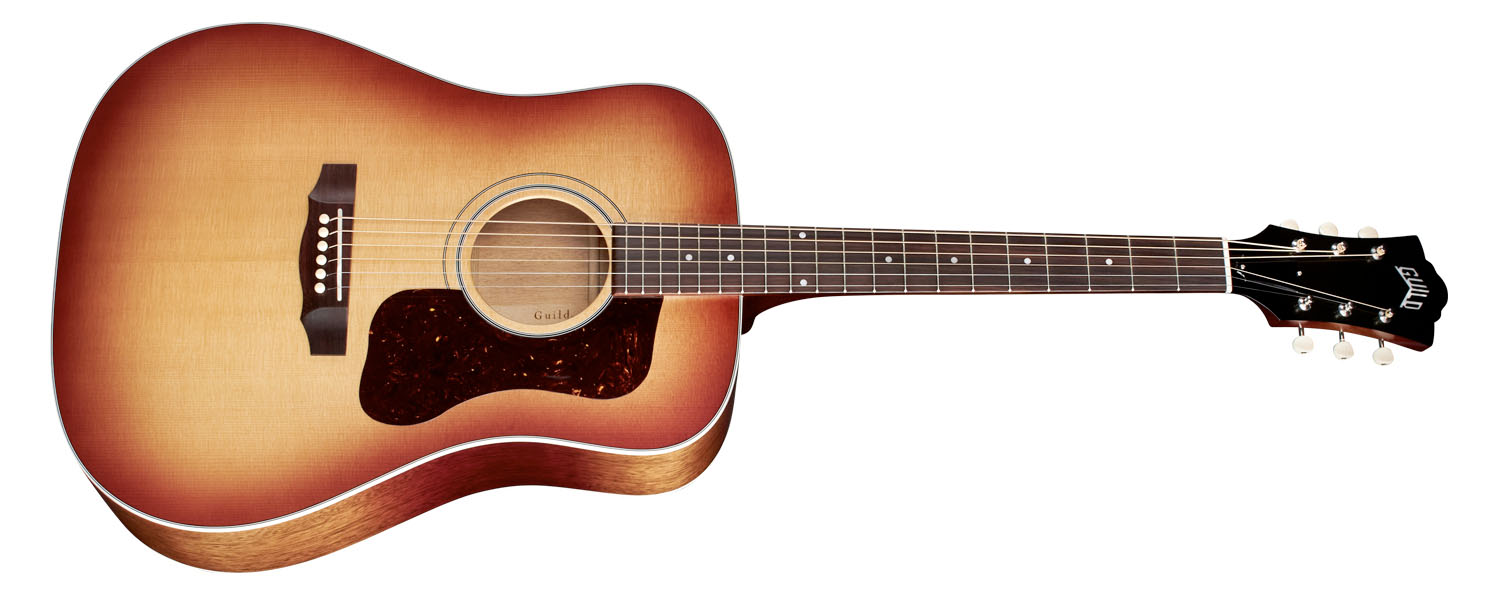
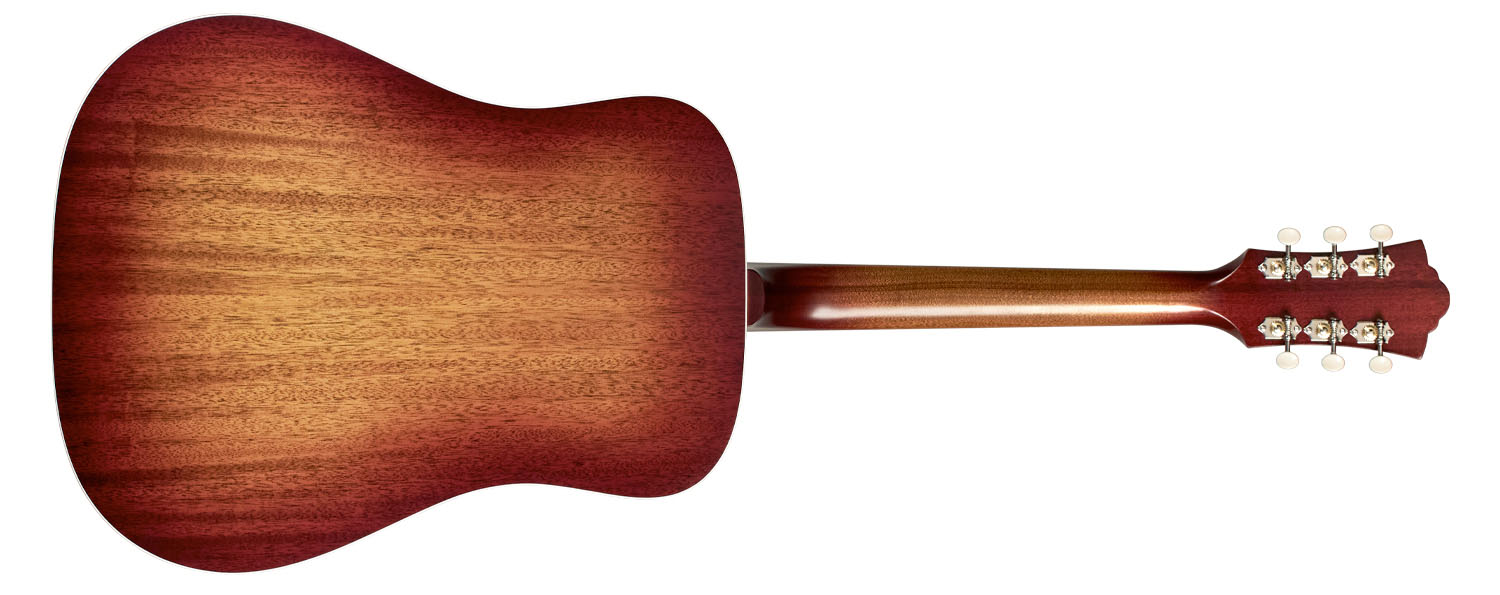
Back to 2023, and these acoustics have a lot in common. Your finish options comprise the aforementioned Pacific Sunset Burst, Antique Burst and Natural.
They all have unbound headstocks, a ‘60s style rosette, cellulose tortoiseshell pickguards, white ABS binding and Guild’s – a triumph of typography – ‘peak’ logo on the headstock.
Get The Pick Newsletter
All the latest guitar news, interviews, lessons, reviews, deals and more, direct to your inbox!
If the finish splits the difference between shiny and brand new and muted vintage, so to does the vibe of the guitars; with their unbound headstocks, and reasonably approachable price for a USA acoustic ($2,499 for the F-40 Standard is not silly money for a pro-quality steel-string in today’s market), there’s a distinctly blue-collar feel to these.
Or, as Guild puts it, this is “no frills, boutique quality” in action. Well, we are all here for that.
Other spec details that these Standard Series models all have in common include C profile mahogany necks, high-ratio 20:1 open gear tuners, Sitka spruce tops with forward-shifted scalloped Adirondack spruce bracing.
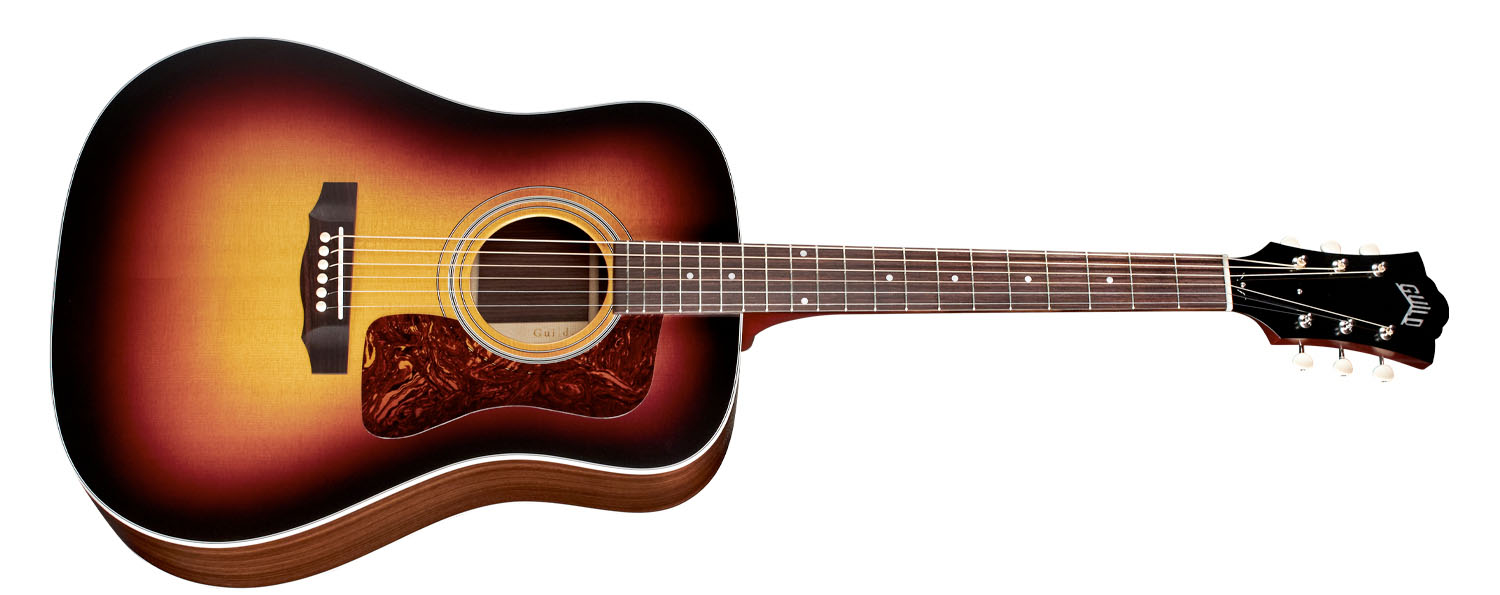
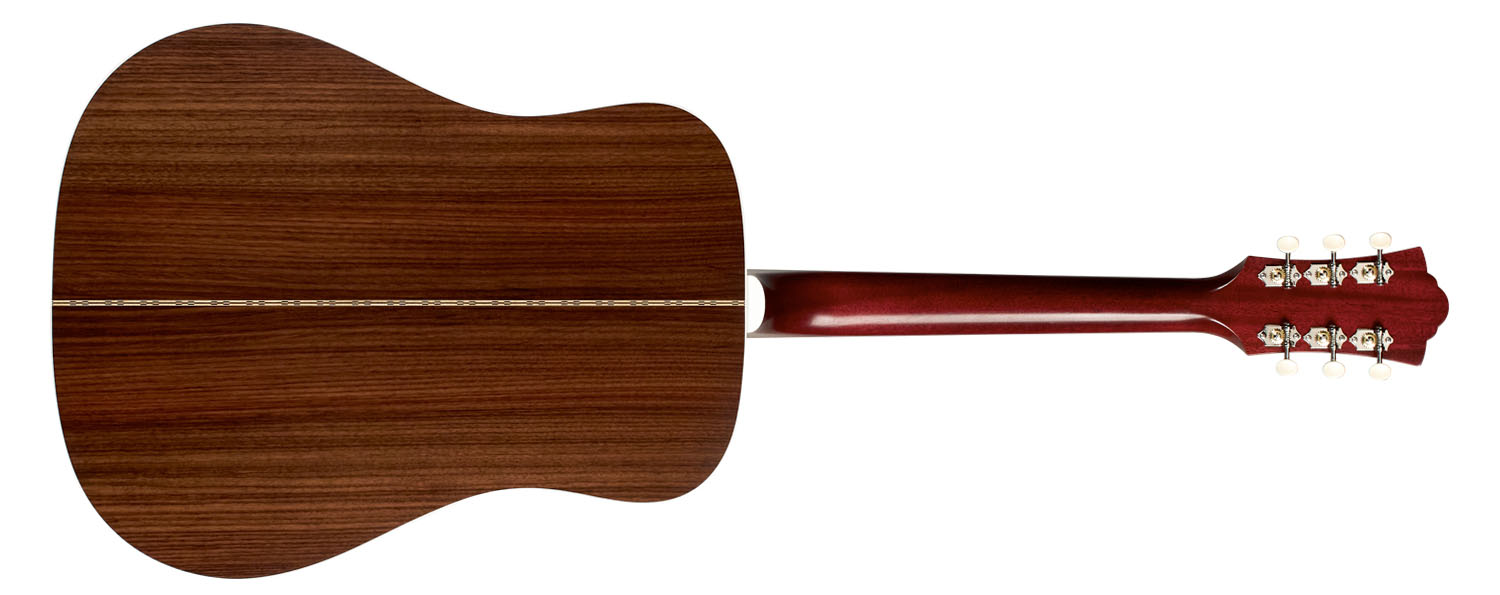
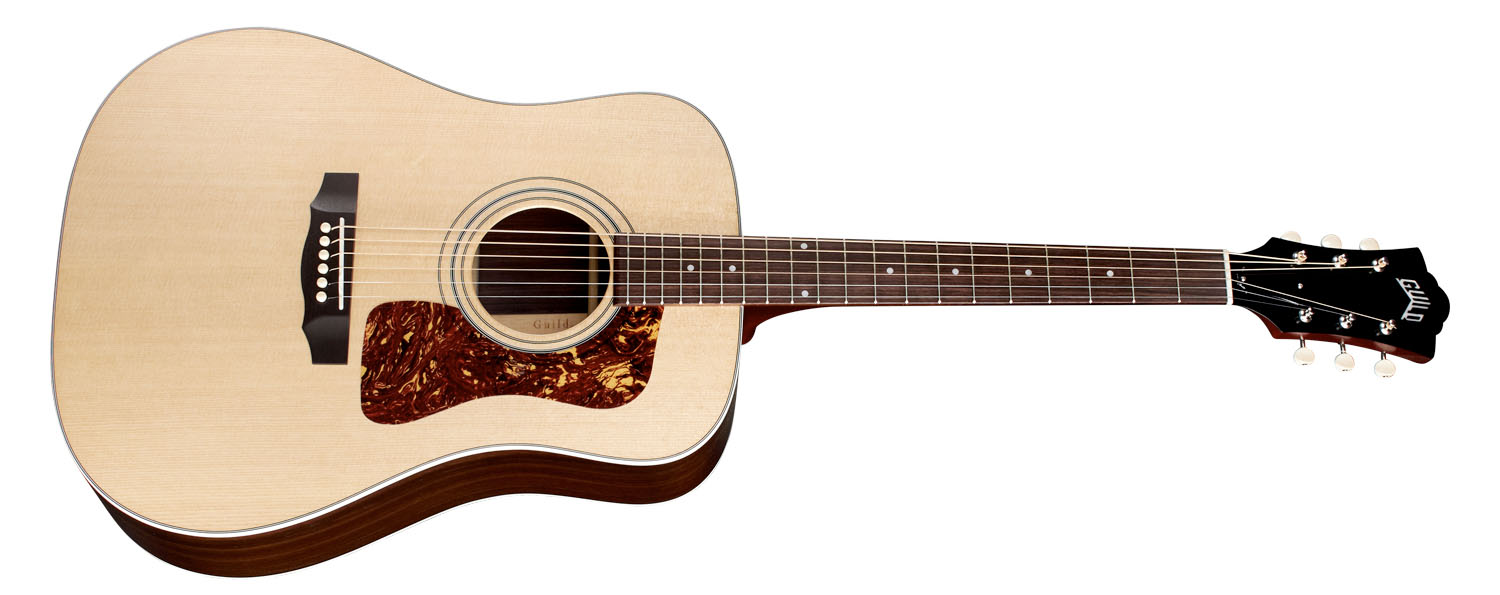
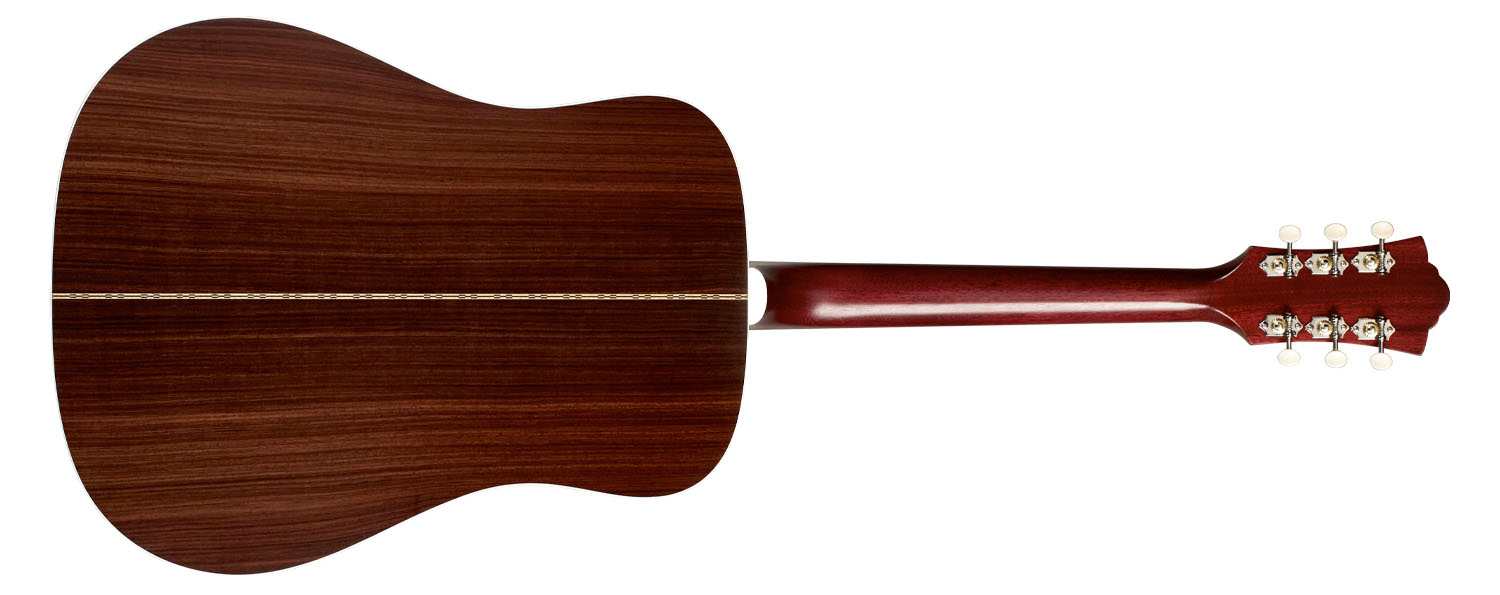
Guild has sourced some rosewood for the fingerboards, which are inlaid with dots (again adding to that sort of jobbing songwriter look), and rosewood is reprised for the bridges.
Nuts and saddles are made of hand-cut bone, and each model in the Standard Series ships in a Guild archtop wood guitar case with a built-in Humicase humidification system – so presumably you can stick your Cubans in there, too. Very handy.
Looking through the series, there’s one model that immediately stands out and that’s the return of the D-50, which is a dreadnought of some repute, inviting a little rosewood to the party for a dread that can handle the big open chords while offering the clarity and sweetness fingerstylists need. Shane Alexander makes a good fist of it in the demo video, that’s for sure.
The D-40 presents us with the archetypical dreadnought tonewood equation – Sitka spruce plus African mahogany back and sides equals volume and presence – and you have got to imagine that this is an acoustic with songs in it.
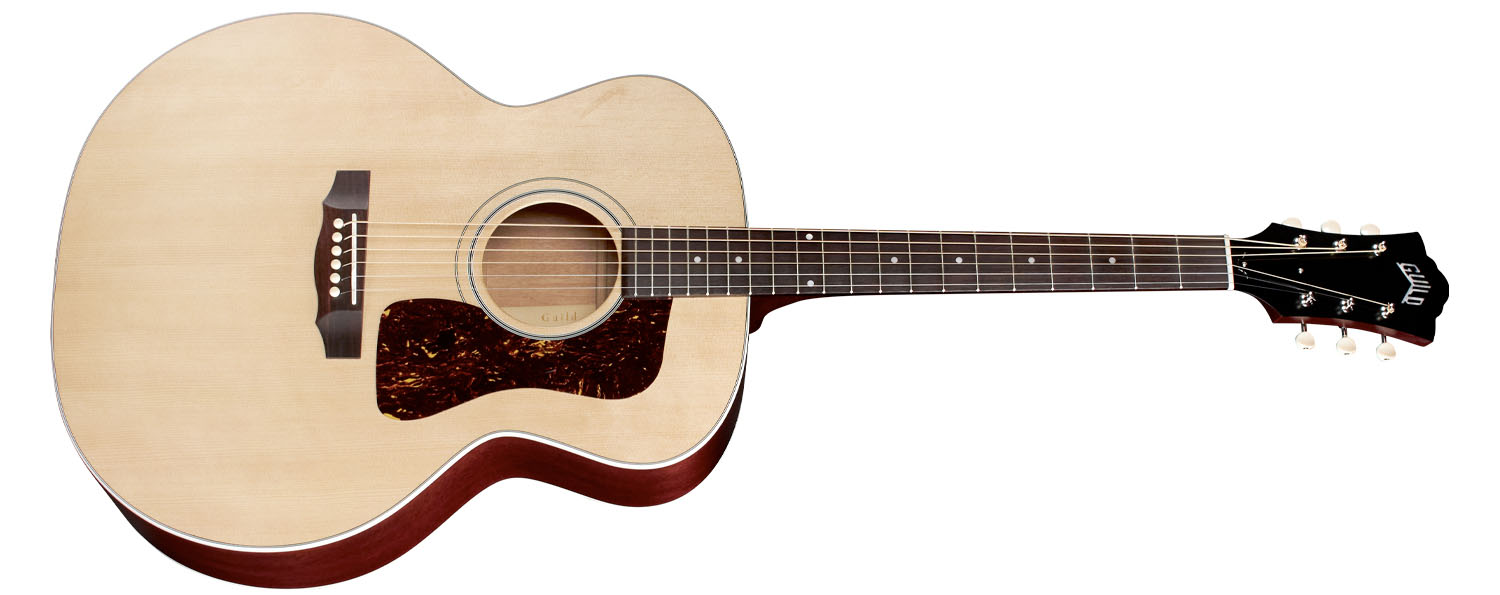
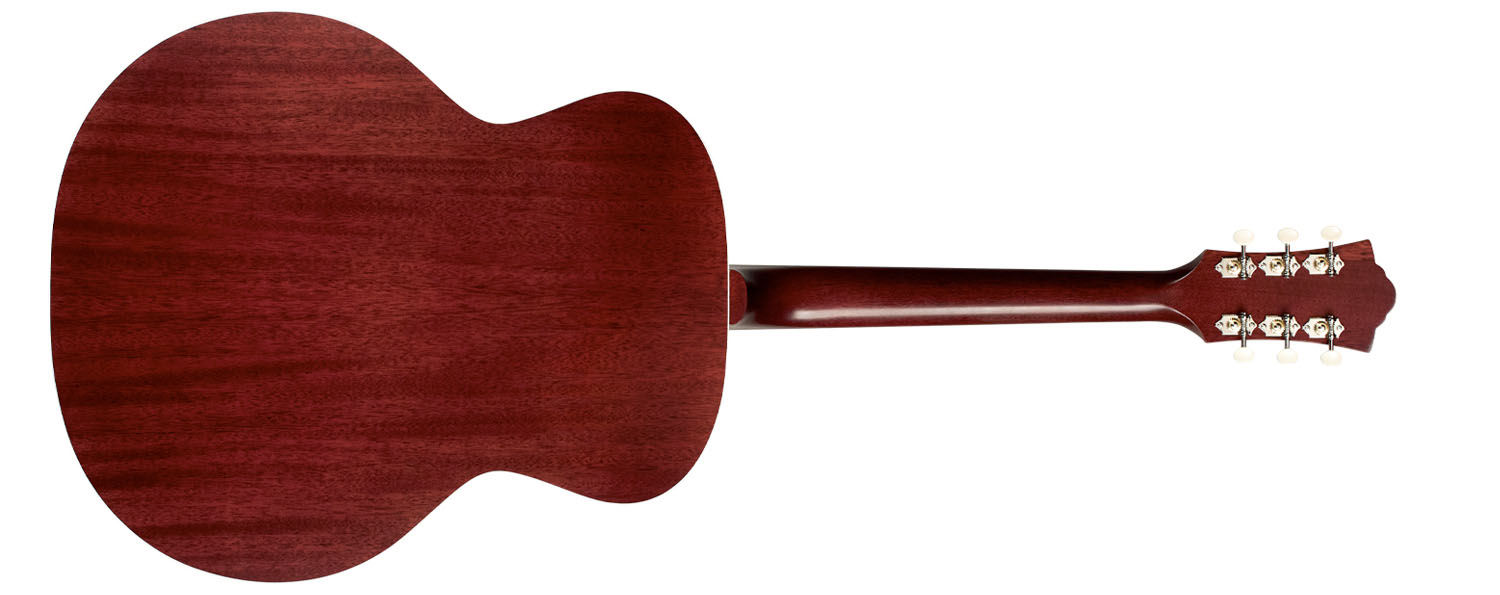
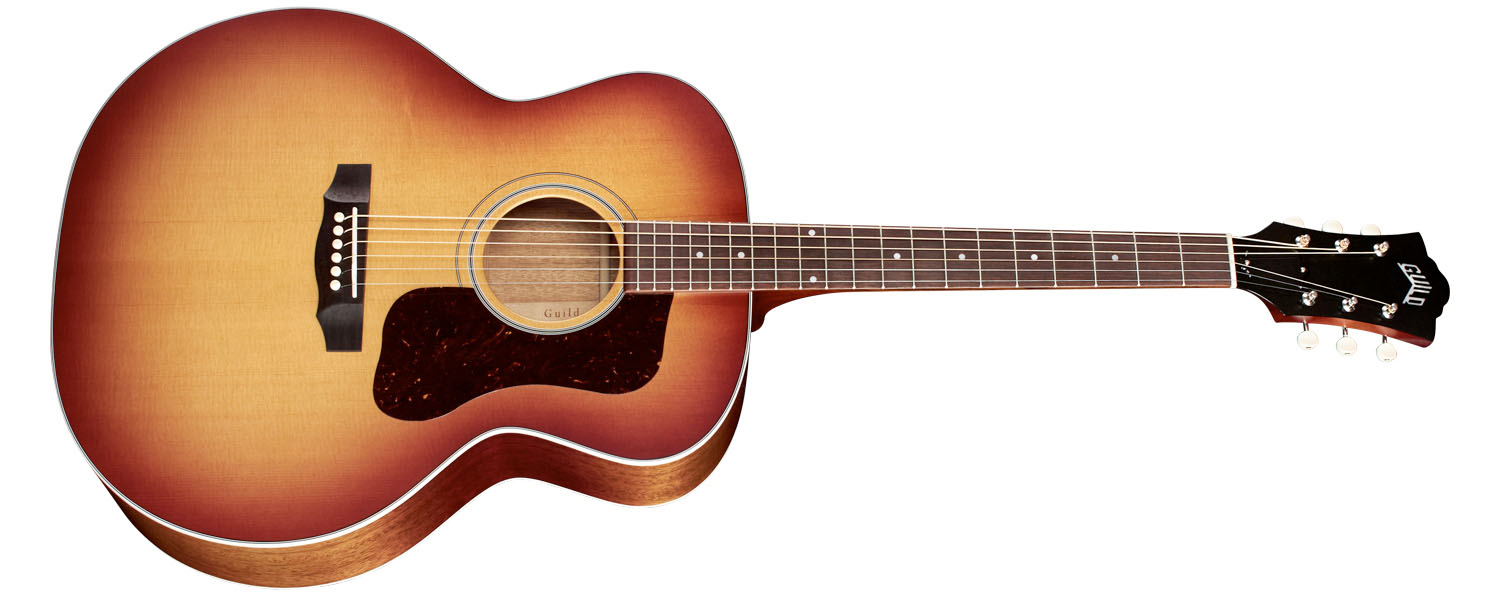
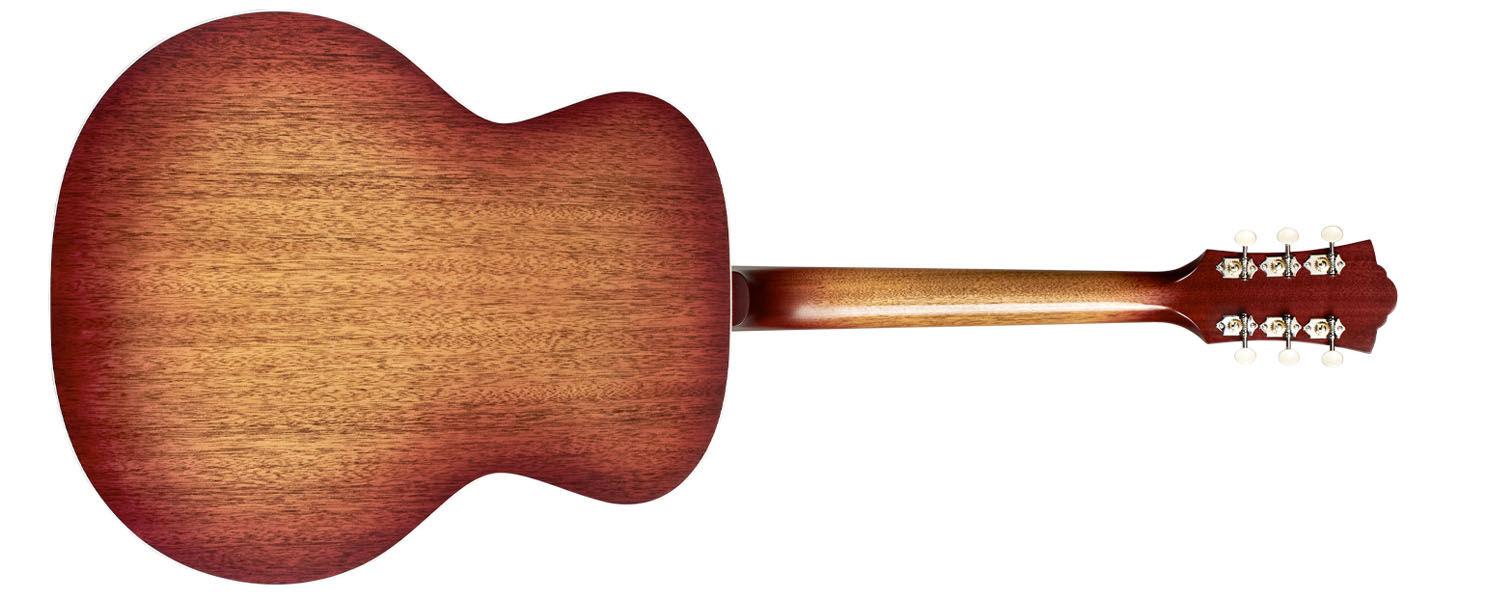
Your jumbo option comes courtesy of the F-40. It shares a similar build to its dreadnought sibling, with African mahogany and Sitka spruce.
The F-50 Standard is priced $2,399 for the Natural finished model, $2,499 for Pacific Sunset Burst. You’ll pay $2,799 for the D-50 in Natural, $2,899 for Antique Burst, while the D-40 is priced $2,399 for the Natural finish, $2,499 for Pacific Sunset Burst.
For more, head over to Guild Guitars.
Jonathan Horsley has been writing about guitars since 2005, playing them since 1990, and regularly contributes to publications including Guitar World, MusicRadar and Total Guitar. He uses Jazz III nylon picks, 10s during the week, 9s at the weekend, and shamefully still struggles with rhythm figure one of Van Halen’s Panama.
“Among the most sought-after of all rhythm guitars… a power and projection unsurpassed by any other archtop”: Stromberg has made a long-awaited comeback, and we got our hands on its new Master 400 – a holy grail archtop with a price to match
The heaviest acoustic guitar ever made? Two budding builders craft an acoustic entirely from concrete because they “thought the idea was really funny”










